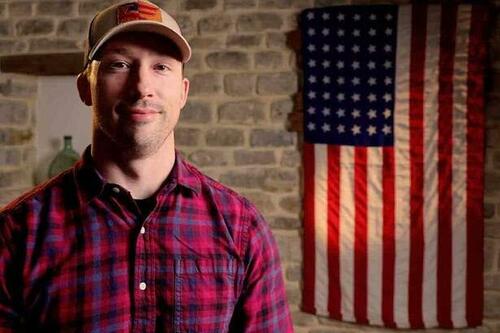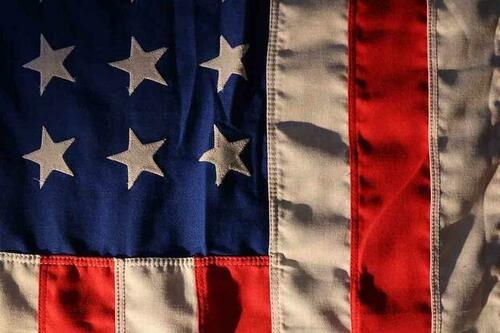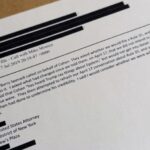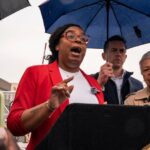
By Blake Stilwell if Military.com
In many ways, Kyle Daniels is your typical Midwestern American. He grew up in a patriotic household, many of his family members joined the military, and his father was very meticulous about flag etiquette -- probably more so than your average American.
"Every morning we put it out at sunrise, we'd go out every night after work, bring it in and fold it the right way. It was very ceremonious," Daniels recently told Military.com. "It was instilled in me very early that this flag represents the freedoms we enjoy today. It's not just about the Fourth of July, it's not just about the special days; it's about every day. And that was something that I held near and dear to my heart."
That patriotism was never lost on him. Daniels would grow up to join the ranks of Army Special Forces. When he left the service, he was looking for what to do in the next phase of his life. He found the opportunity to combine his love of country with his post-military career -- a way to defend Old Glory itself, even if he's not there to do it personally.
"I walked right out of a college class in 2003 and directly to a recruiter's office to sign [on] the dotted line," Daniels said. "Within three months, I was in boot camp. I was a lost soul and just did not feel any compelling purpose for college. This was around the time that the war in Iraq kicked off, and I just knew I could do more there."
Daniels joined the Army's 18X program, which allowed him to go directly into Special Forces training. After boot camp, he went through Airborne School and the Special Forces Q-Course; by 2005, he was assigned to the 10th Special Forces Group. A year later, he finally made it to Iraq for the first of two deployments there. He stepped off a C-17 Globemaster III the night he arrived to see the American flag flying on the airfield.
"I remember not knowing what to expect going into combat," Daniels recalled. "I was 22, and it was my first time actually going to war. I remember being at peace with it, but still not knowing what to expect. I'll never forget coming off of a C-17 and seeing, very distinctly, the flag flying right on the airfield in Baghdad.
"Something about seeing that, knowing where I was, brought me a sense of comfort, and that's a lot of what the flag really, really instills in me. No matter where I am in the world, if I see that flag, there's going to be some sense of comfort or reassurance."
When Daniels left the U.S. military in 2010, he fulfilled a promise to his dad to finish college, but he struggled to figure out what he would do next. Like many veterans, he sought the help of friends who had already transitioned. A former teammate, Jason Van Camp, connected him with Warrior Rising, a nonprofit that helps veterans get their business ideas off the ground. Daniels and Van Camp talked at length about the politics of the country, and didn't like what they saw.
At the time, tensions were high in the United States, especially around the flag. Daniels saw protests around the 2016 presidential election and protests against American activities all over the world in which flags were being burned. He naturally felt the discourse didn't represent the values that were instilled in him -- with flags being burned.
"That really resonated with me," he said. "I've seen the sacrifice people make for that flag and for the freedoms that it represents. I didn't really know what to do at the time, but the idea came about. I was like, 'I wish there was a flag that didn't burn.' And then we had the idea: Let's make one."
So they did, and by 2020, Firebrand Flags was born.
The material used to create these flags uses the same Kevlar-based fire retardant and manufacturing processes used to create U.S. military combat uniforms. They're also engineered for durability. Anyone who's flown a flag from their front porch knows that after even just a year of exposure to the elements, flags become frayed and discolored. Firebrand's classic flag also prevents both. They are also, of course, made in the United States, with each star hand-sewn onto the blue field.
"We wanted a flag that not just embodied the fighting spirit that our men and women have but could actually defend itself from people who wanted to do it harm, people who wanted to disparage the flag or burn the flag," Daniels said. "It was important for me that the stars were hand-sewn, and everything else is made in America."
For a limited time, the company is offering a special, World War II-era vintage 48-star flag that was airdropped into Normandy, France, with the cast of the HBO series "Band of Brothers" to commemorate the 80th anniversary of the D-Day invasion. To learn more about the process of making flags that won't burn, Kyle Daniels or more about Firebrand's "Old Glory" classic flag, visit the Firebrand Flags website.
By Blake Stilwell if Military.com
In many ways, Kyle Daniels is your typical Midwestern American. He grew up in a patriotic household, many of his family members joined the military, and his father was very meticulous about flag etiquette — probably more so than your average American.
“Every morning we put it out at sunrise, we’d go out every night after work, bring it in and fold it the right way. It was very ceremonious,” Daniels recently told Military.com. “It was instilled in me very early that this flag represents the freedoms we enjoy today. It’s not just about the Fourth of July, it’s not just about the special days; it’s about every day. And that was something that I held near and dear to my heart.”
That patriotism was never lost on him. Daniels would grow up to join the ranks of Army Special Forces. When he left the service, he was looking for what to do in the next phase of his life. He found the opportunity to combine his love of country with his post-military career — a way to defend Old Glory itself, even if he’s not there to do it personally.
“I walked right out of a college class in 2003 and directly to a recruiter‘s office to sign [on] the dotted line,” Daniels said. “Within three months, I was in boot camp. I was a lost soul and just did not feel any compelling purpose for college. This was around the time that the war in Iraq kicked off, and I just knew I could do more there.”
Daniels joined the Army’s 18X program, which allowed him to go directly into Special Forces training. After boot camp, he went through Airborne School and the Special Forces Q-Course; by 2005, he was assigned to the 10th Special Forces Group. A year later, he finally made it to Iraq for the first of two deployments there. He stepped off a C-17 Globemaster III the night he arrived to see the American flag flying on the airfield.
“I remember not knowing what to expect going into combat,” Daniels recalled. “I was 22, and it was my first time actually going to war. I remember being at peace with it, but still not knowing what to expect. I’ll never forget coming off of a C-17 and seeing, very distinctly, the flag flying right on the airfield in Baghdad.
“Something about seeing that, knowing where I was, brought me a sense of comfort, and that’s a lot of what the flag really, really instills in me. No matter where I am in the world, if I see that flag, there’s going to be some sense of comfort or reassurance.”
When Daniels left the U.S. military in 2010, he fulfilled a promise to his dad to finish college, but he struggled to figure out what he would do next. Like many veterans, he sought the help of friends who had already transitioned. A former teammate, Jason Van Camp, connected him with Warrior Rising, a nonprofit that helps veterans get their business ideas off the ground. Daniels and Van Camp talked at length about the politics of the country, and didn’t like what they saw.
At the time, tensions were high in the United States, especially around the flag. Daniels saw protests around the 2016 presidential election and protests against American activities all over the world in which flags were being burned. He naturally felt the discourse didn’t represent the values that were instilled in him — with flags being burned.
“That really resonated with me,” he said. “I’ve seen the sacrifice people make for that flag and for the freedoms that it represents. I didn’t really know what to do at the time, but the idea came about. I was like, ‘I wish there was a flag that didn’t burn.’ And then we had the idea: Let’s make one.”
So they did, and by 2020, Firebrand Flags was born.
The material used to create these flags uses the same Kevlar-based fire retardant and manufacturing processes used to create U.S. military combat uniforms. They’re also engineered for durability. Anyone who’s flown a flag from their front porch knows that after even just a year of exposure to the elements, flags become frayed and discolored. Firebrand’s classic flag also prevents both. They are also, of course, made in the United States, with each star hand-sewn onto the blue field.
“We wanted a flag that not just embodied the fighting spirit that our men and women have but could actually defend itself from people who wanted to do it harm, people who wanted to disparage the flag or burn the flag,” Daniels said. “It was important for me that the stars were hand-sewn, and everything else is made in America.”
For a limited time, the company is offering a special, World War II-era vintage 48-star flag that was airdropped into Normandy, France, with the cast of the HBO series “Band of Brothers” to commemorate the 80th anniversary of the D-Day invasion. To learn more about the process of making flags that won’t burn, Kyle Daniels or more about Firebrand’s “Old Glory” classic flag, visit the Firebrand Flags website.
Loading…






